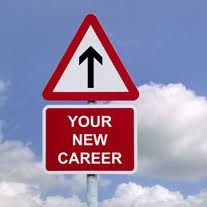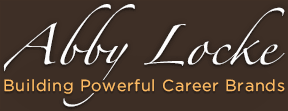
In light of today’s “less-than-ideal” economic climate, are you feeling anxious about your career future and possible job opportunities? Are simply dissatisfied with your job and daydreaming about changing to a new industry or career?
Challenging yourself to finally pursue your passion is exciting and stimulating, but scary at the same time…charting the course to a new career requires careful planning and preparation to ensure a smooth navigation.
So, here are a few steps that you need to consider before making your move.
A) Conduct a self-evaluation
You should know who you are and know the unique value you offer employers.
Take the time to identify your personal brand and gain clarity on your leadership skills, management capabilities and transferable skills. Key questions to help you in this process include:
- Where do your greatest talents lie?
- What are the most valuable things you have to offer a prospective employer?
- What is your professional reputation?
- What do others say about you?
- What differentiating value do you have over others doing similar work?
B) Research potential employers and new industries
Always look before you leap…maximize resources like the Occupational Outlook Handbook that provide a wealth of information on occupations and even gives actual job descriptions and qualification requirements.
Compile a list of specific companies via online tools like wetfeet.com and vault.com for insiders’ perspectives.
C) Get the inside scoop
One of the best ways to learn about new fields or industries is through informational interviews as they give great insider perspective; that individual can also serve as a mentor, job search support, and often even a reference for the right opportunities.
Don’t forget to use online social networks like LinkedIn.com, Ecademy.com, Zoominfo.com and Ziggs.com to connect with former associates and friends and search for industry experts and top people in your target companies.
D) Suit up your executive resume for a new career
Don’t make let a career-changer resume make you look unqualified for the position.
Keep your career progression chronological as much as possible, but emphasize the job responsibilities, achievements and experience that are directly relevant to your new job target.
Let extensive research on your target positions be your guide for valuable keywords, industry jargon and relevant language that would work effectively in your resume.
Check out this resume excerpt from a banker who was targeting non-profit management positions and used this content in her executive summary.
Articulate leader with strong connections with key executives, government officials and community leaders. Hands-on expertise with donor relations and extensive knowledge of corporate funding and sponsorships. Frequent award recipient for exceptional leadership in community affairs.
Board Experience: Served actively on Board of Directors and committees for major business and community associations including MD/DC Minority Supplier Development Council, Bank of America Mid-Atlantic Foundation, First Book DC Local Advisory Board, and Capitol Hill Association of Merchants & Professionals.
Note how she brought her volunteer work (a definite bonus in the non-profit world) to the forefront on her resume.
E) Try multiple approaches in your job search
If the Internet is your only “weapon” for snaring that your new job, you might as well change your name to disappointment; join professional and industry-related associations, alumni groups and Chamber of Commerce committees. Identify key industry leaders you want to meet, schedule informational meetings/interviews, and start building your own team of alliances.
Which of the above strategies will you try this week to get moving with your career change?




